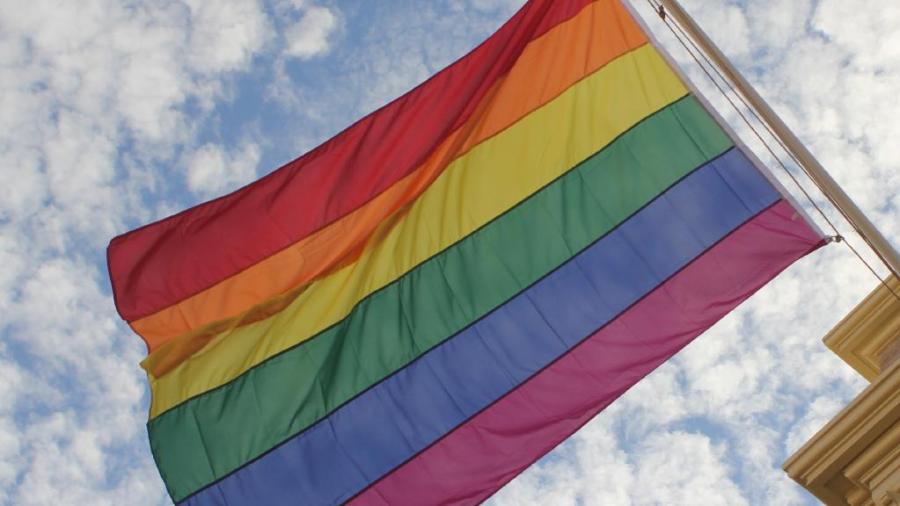The Lord said to Abraham, ‘Go from your country and your kindred and your father’s house to the land that I will show you… I will bless you… so that you will be a blessing… and in you all the families of the earth shall be blessed.’ (Genesis 12:1-3, NRSV)
From talking with Christians who plan to vote No in the marriage equality postal survey, it seems many are swayed by the unknown consequences of change. What might it mean for religious freedom, the school curriculum, or other unknown unknowns? My contention is that this well-known passage from the book of Genesis can provide support for a Christian endorsement of same-sex marriage, despite – or even because – it may seem like a step into an uncharted future.
A blessing to others
It starts with the Old Testament understanding of blessing. The Hebrew word used here for ‘blessing’ is barak (as in Obama). Simply put, it means ‘praise’ or ‘congratulations’. In the Australian idiom: ‘Good on you!’ Blessing in the Old Testament is never airy-fairy or ‘spiritual’ – it is concrete and practical, the good life in the here-and-now.
Such blessings are designed to be shared. The phrase ‘You will be a blessing’ can be read as a description of what will naturally happen. But it can also be understood as a command: you must be a blessing! This implies that blessings are not automatically contagious; Abraham and his descendants have a responsibility to ensure they extend them to others.
Which others? ‘All the families of the earth’. The emphasis is on the scope of the blessing (‘all… of the earth’) as much as the type of social unit. But the word families (and mishpachah is the ordinary Hebrew word for families, although some English translations replace it with ‘peoples’) cannot help taking on extra resonance in the context of marriage equality.
And what must Abraham do in order to be blessed? ‘Go from your country and your kindred and your father’s house…’ In other words, to leave behind what is familiar to him and enter into the unknown. This is where things become interesting.
‘Go from your country…’
Contemporary theologian Miroslav Volf stresses the figure of Abraham as a role model and spiritual ancestor for all Christians. In Volf’s book Exclusion and Embrace (1996), he focuses on this command to ‘Go from your country…’ God presents Abraham with a crucial choice: he would either belong to his country, his culture, and his family and remain comfortably inconsequential or, risking everything, he would depart and become great – a blessing to ‘all the families of the earth’. If he is to be a blessing he cannot stay; he must depart, cutting the ties that so profoundly defined him (p. 39).
For Christians today, says Volf, following in Abraham’s footsteps and responding to God’s call ‘entails rearrangement of a whole network of allegiances… Departure is part and parcel of Christian identity’ (p. 40). Not necessarily a physical departure, but certainly a cultural one: ‘an all-encompassing change of loyalty’ (p. 40).
Volf’s analysis radicalises the theology of blessing. To fulfil the purpose of blessing – to be a blessing to others – depends on a willingness to take risks, to be open to the new, to hold lightly to cultural certainties, and to orient oneself away from a known past and towards an unknown future.
So back to marriage equality. While marriage is never explicitly described as a blessing in the Old or New Testaments, it is presented as a positive and desirable state. Jesus is quoted as acknowledging it as a gift from God (Matthew 19:1-12). The many benefits that marriage offers – love, companionship, security, children and the rest – are part of what people in biblical times – and ours – would recognise as the good life in the here-and-now.
Advocates have spelled out the benefits of marriage equality – of extending these blessings to others – many times: legal benefits, psychological benefits, benefits to physical health and well-being. And there are benefits not just for same-sex couples who choose to marry, but for the children of same-sex couples, the wider LGBTI community and society as a whole.
Embracing the unknown
My argument is that, as spiritual descendants of Abraham, Christians have a responsibility – and one would hope, joy – to extend to others, to ‘all the families of the earth’, the blessings they have received themselves. Including marriage. And including LGBTI families.
Undoubtedly, this may push many Christians far outside their comfort zones. It may mean taking a decision without knowing the full consequences – although the experience of other countries who have taken this step suggests that the sky will not fall.
It may prompt some Christians to depart from familiar assurances and even prejudices. It may cause some to read for themselves what the Bible does and does not say about marriage, sex and sexuality. To consider whether the Church has formed some very dubious allegiances and used self-serving readings of scripture to justify innate homophobia. It may even encourage reflection on how Christianity has so easily slipped into the role of ‘the bad guy’ in a debate over love, compassion and inclusion – and what can be done about it.
If Abraham is really our ancestor, uncertainly, fear and a desire to cling to the familiar cannot be legitimate reasons to vote No. Instead, the radical departure from cultural certainties it calls for may actually be a compelling sign of God’s call. A call to vote Yes and say to same-sex couples ‘Good on you’.
